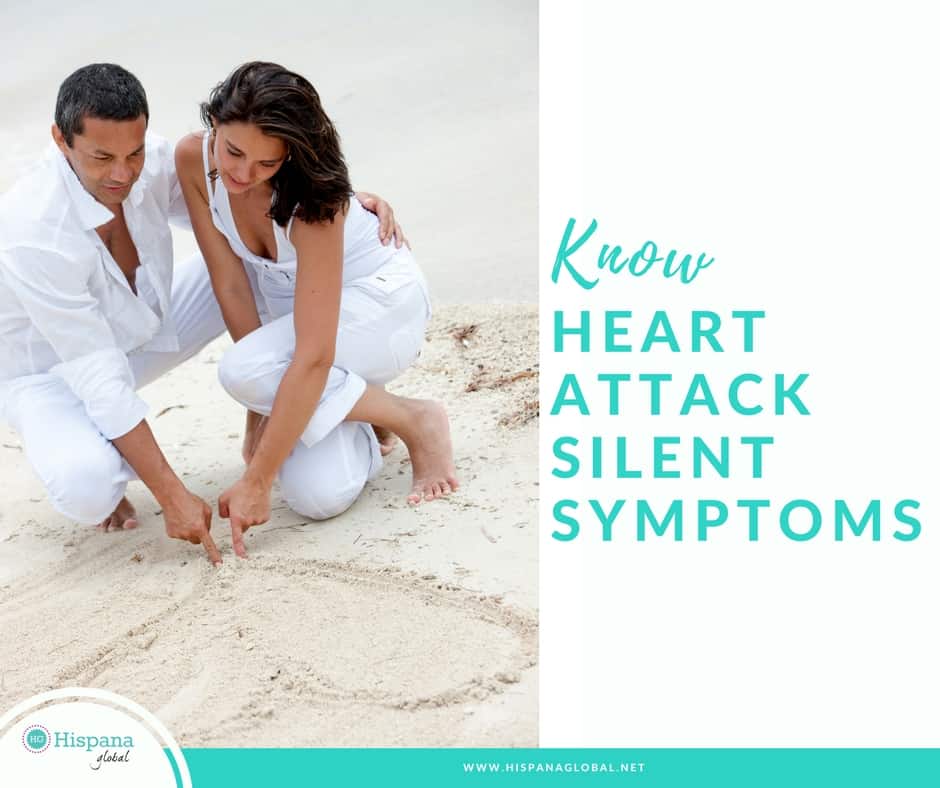You Might Save A Life By Knowing These Silent Symptoms Of Heart Attacks
Heart attacks are not necessarily how we imagine them and knowing the symptoms can save a life. In fact, through my partnership with Baptist Health South Florida, I learned that about half of heart attacks have symptoms that are mistaken for less serious health issues. This might increase a person’s risk of dying. For women, this is even more important. The American Heart Association says that women who suffer silent heart attacks tend to fare worse than men. Generally, women often don’t suffer the classic heart attack symptoms associated with men, such as intense chest pain. Recent studies have found that women can suffer heart attack symptoms with pain or discomfort that is less intense, compared to those of men.
They are often referred to as “silent heart attacks” because they lack the traditional signs of a cardiac event, such as extreme chest pain or pressure, stabbing pain in the arm, neck, or jaw, or shortness of breath. That is why I am sharing with you the silent symptoms that can alert you in case a loved one (or even you) might be having a heart attack. Please call 911 or a doctor if you suspect you or somebody you know is having a cardiac event because every minute counts.
4 Heart Attack Silent Symptoms
Silent heart attacks can have one or more of these symptoms to varying degrees:
- Discomfort in the center of the chest. It can last several minutes, or go away and return. It can feel like pressure or pain. Intensity can vary.
- Discomfort in other upper-body areas, such as one or both arms, the back, the neck, the jaw, or the stomach.
- Shortness of breath before or during the chest pressure or pain.
- Breaking into a cold sweat, or feeling generally nauseated or lightheaded or dizzy.
Silent heart attacks can produce symptoms such as indigestion, nausea, muscle pain or even a malaise that resembles a bad case of the flu. “People will often feel fairly normal during a silent heart attack or feel some chest or overall discomfort that is not so intense as to signal that something is seriously wrong,” says Dean Heller, M.D., a cardiologist with Miami Cardiac & Vascular Institute.
To complicate things even further, extreme or frequent fatigue or general physical discomfort are common in victims of silent heart attacks. Some people who’ve survived silent heart attacks recall mistaking their episode for an upset stomach or a bad cold accompanied by muscle aches. That’s why you should call a doctor if you or a loved one have frequent fatigue.
How to detect silent heart attacks
Silent heart attacks are usually detected from an electrocardiogram (EKG) or echocardiogram, which can determine if there is heart muscle damage. Another method is a blood test for the molecular footprints of troponin T, a protein released by injured heart cells. The troponin T test is used in emergency departments for a patient complaining of heart attack symptoms.
Know Your Risk Factors

“It’s important to keep up with those readings that determine your risk for coronary artery disease,” says Dr. Heller. “If you know your risk is elevated, you are less likely to dismiss not-so-obvious signs of a heart attack.”
In addition to hypertension, diabetes and high cholesterol, the risk factors for a silent heart attack are the same as those for a heart attack with more obvious symptoms. They include smoking, a family history of heart disease, age, lack of exercise, and being overweight.
For more great health tips, make sure to check out Baptist Health South Florida’s blog.
Disclosure: this post is part of a sponsored collaboration with Baptist Health South Florida but all opinions are my own.








